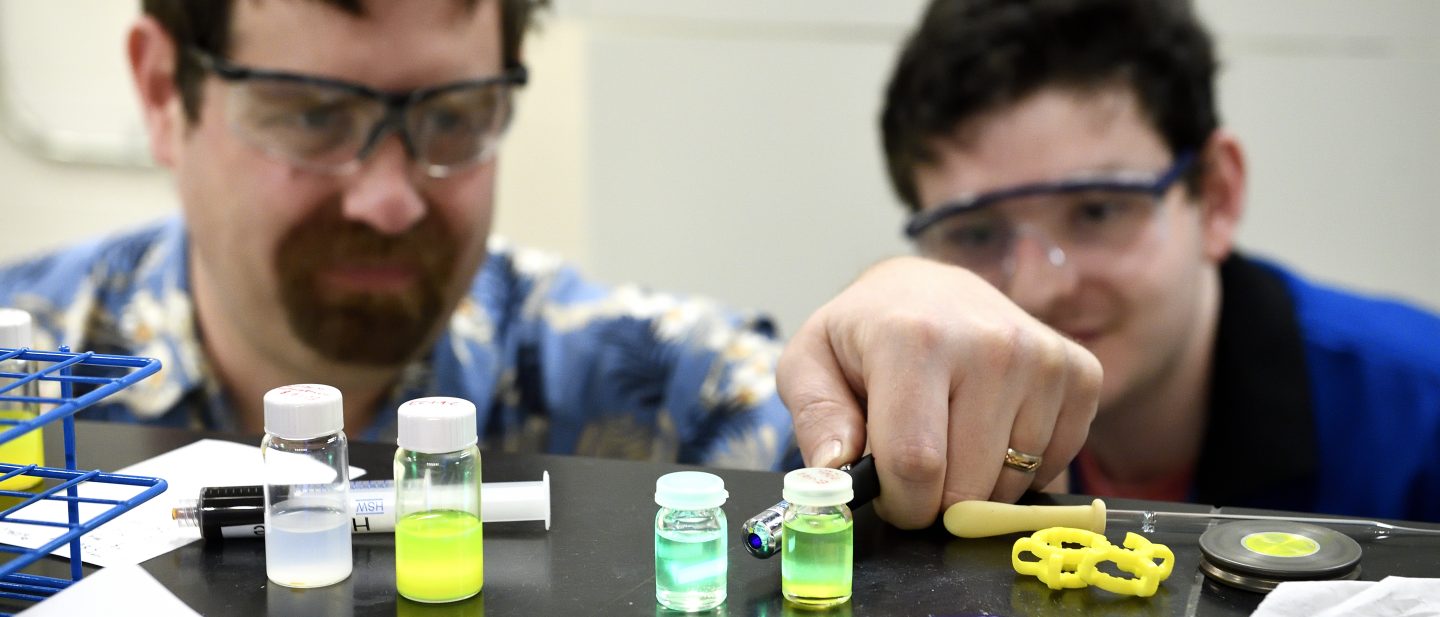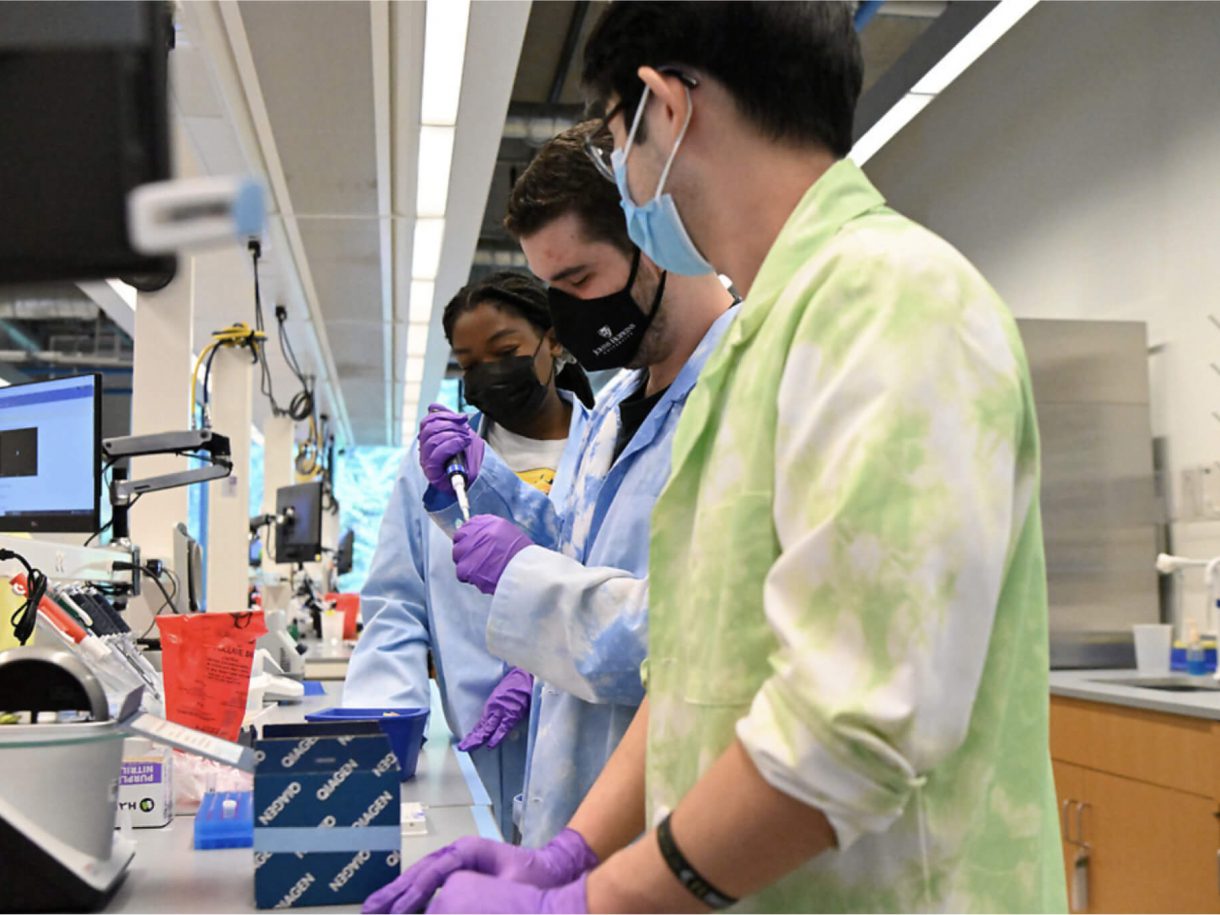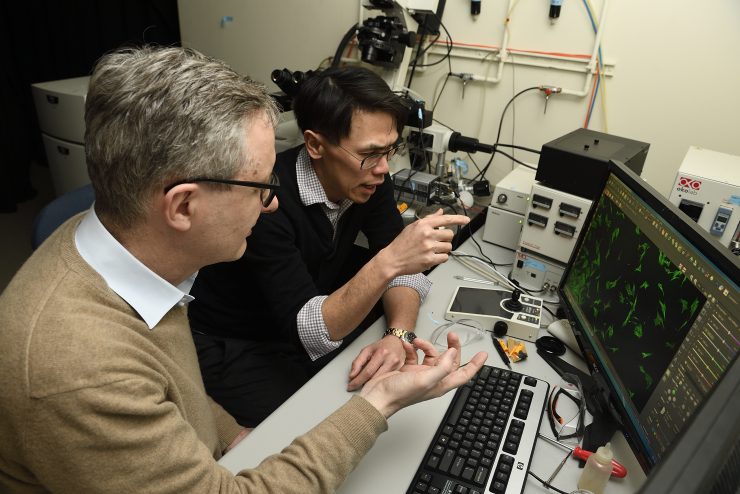
Boundless Potential
The Johns Hopkins community is frequently recognized for groundbreaking research, and every day here is an opportunity for discovery. Sustainability-focused research efforts have expanded significantly in the last several years, including the establishment of the Ralph O’Connor Sustainable Energy Institute and the announcement of two new Bloomberg Distinguished Professor clusters in Climate, Resilience, and Health and Sustainable Transformations and Energy.
Read more about the diverse areas of research in sustainability to discover where your interests lie:
The future of sustainable energy is integral to society’s ability to combat the climate crisis. It is imperative that we develop and implement energy infrastructure and systems that make renewable, efficient energy widely accessible. Faculty, staff, and students alike are exploring the technology, policy, and infrastructure that would allow for the widespread adoption of just and sustainable energy alternatives.
Explore JHU Affordable & Sustainable Energy Researchers here.
Water covers over 70% of the Earth’s surface and is a defining feature of our planet. Water availability and access to clean and safe drinking water are essential for human health and sustainable development beyond contributions to the atmospheric processes that allow for life on our planet. Engineering, risk assessment, epidemiology, and agriculture are samples of the subject areas impacted by water and are areas where Hopkins faculty are working to address global water challenges.
Explore JHU Clean Water & Sanitation Researchers here.
Climate change poses one of the most — if not the most — pressing threats to this and future generations. It is a dire problem that demands immediate, collective action not just from climate scientists and policymakers, but from individuals across all disciplines. Johns Hopkins is dedicated to leveraging its world-class faculty, resources, and influence to develop and implement solutions to the climate problem.
Explore JHU Climate Solutions Researchers here.
The health and well-being of communities is dependent on a multitude of factors. Environmental sustainability touches many: community food systems, green space & urban tree canopy, and access to clean, drinkable water among them. Sometimes oversimplified to an issue of choice, the health status and lifestyle choices of community members are often a byproduct of the systems — political, economic, social — in which they exist. Many JHU affiliates study and implement methods to increase agency and accessibility to resources within communities across impact areas.
Explore JHU Healthy Communities, Workplaces & Lifestyles Researchers here.
One of the costs of industrialization, clean and healthy air is not a guarantee and minority, impoverished, and disenfranchised communities are at an elevated risk of exposure to unhealthy, toxic, and even deadly air. The equation for healthy air, however, is much more complex than a formula of emissions from factories and automobiles; it involves the dynamic interplay between infrastructure, waste management, and public health — among other disciplines.
Explore JHU Healthy Air Researchers here.
The development of novel technologies is integral to our ability to mitigate and adapt to the climate crisis. From batteries for the storage of renewable energy and optimized grids for its delivery and use to carbon capture technologies, the potential for innovation is endless and promotes a diversified, strengthened circular economy in the process.
Explore JHU Innovation & Economic Progress Researchers here.
Each day humans use and thus consume a multitude of products, the production and consumption of which directly impact the planet and human health. Hopkins faculty are working to understand how materials and products can be made and used so that they meet the needs of consumers without harming our fragile, diverse ecosystems.
Explore JHU Sustainable Ecosystems & Resource Use Researchers here.
Land is where we spend nearly our entire lives and, as such, it provides us with a plethora of environmental services — including food and energy. Yet, current land-use practices and food systems are contributing to ecosystem degradation and chronic diseases. Hopkins faculty across disciplines are working to shape policy and ecosystem landscapes so that all people have access to nutritious, sustainable, and equitable diets.
Explore JHU Sustainable Food Production & Diet Researchers here.
Interested in an Area?
Dive into our curated directory for researchers at Hopkins championing the sustainable movement and filter by your area of choice.
Bloomberg Distinguished Professorships
Among the world’s most accomplished interdisciplinary scholars, these faculty link academic disciplines, open novel fields of inquiry, and invigorate the entire community, all in the service of tackling society’s most complex problems. BDPs are appointed in two or more schools or divisions, including academic centers reporting directly to the provost, or in two or more departments within a single school. They are grouped together as “clusters” under a common theme. In 2021, the Provost’s Office announced a new phase of BDP hires including those for clusters in Climate, Resilience, and Health and Sustainable Transformation and Energy.

Research at JHU
Researchers at our nine academic divisions and at the university’s Applied Physics Laboratory have made us the nation’s leader in federal research and development funding each year since 1979. Find additional information on funding opportunities, awards and initiatives, and ongoing projects.
